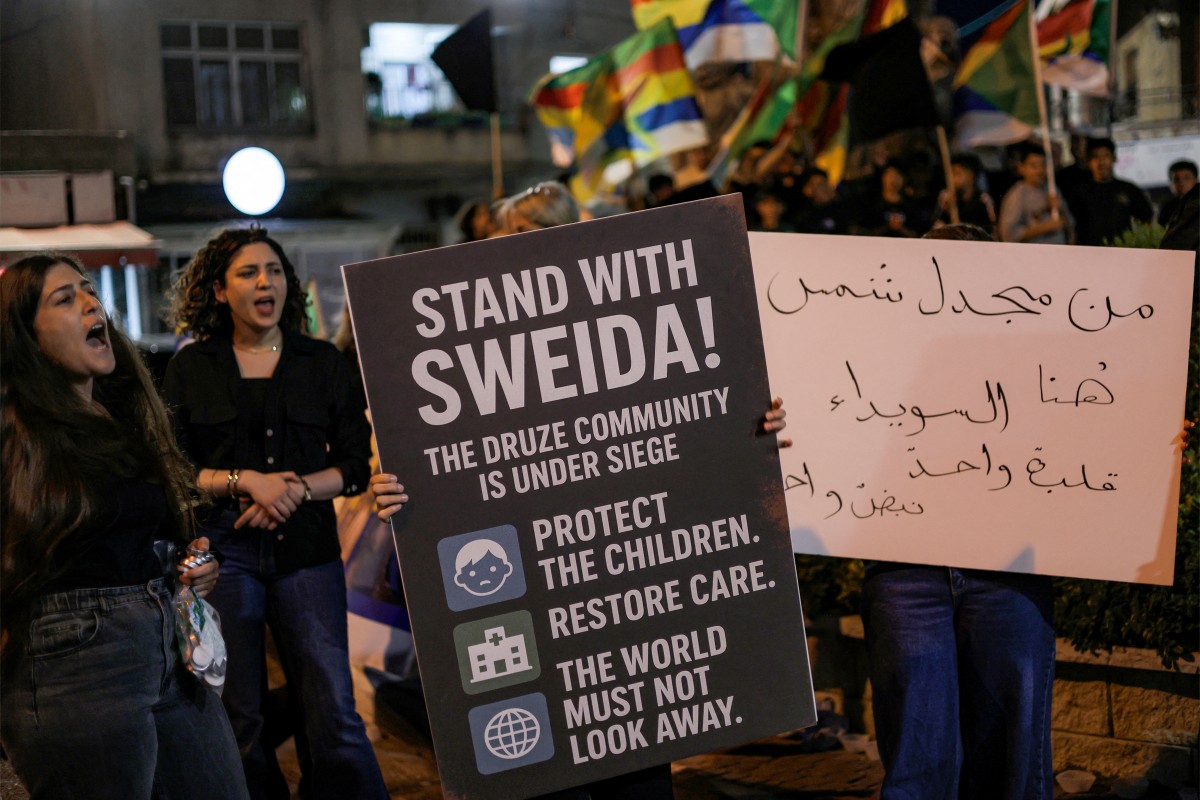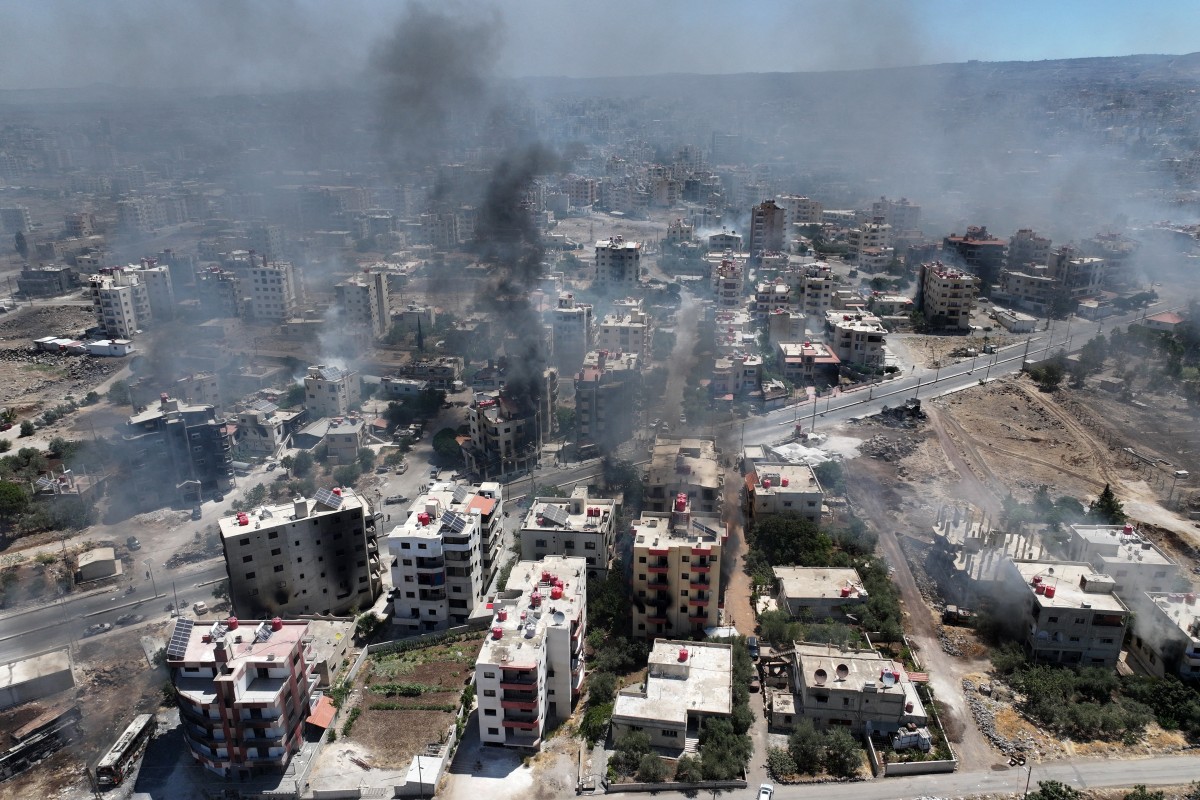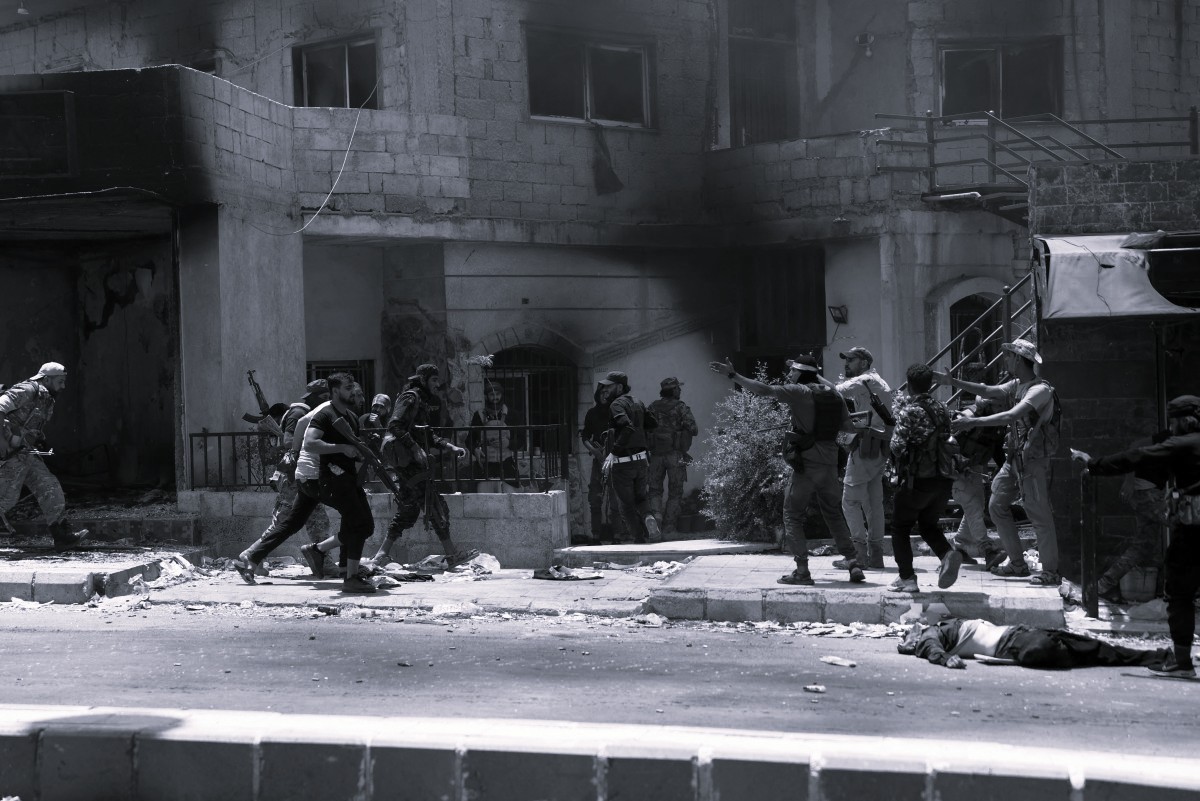
By Agence France-Presse
Druze fighters pushed out rival armed factions from Syria’s southern city of Sweida on Saturday, a monitor said, after the government ordered a ceasefire following a U.S.-brokered deal to avert further Israeli military intervention.
Fighting nonetheless persisted in other parts of Sweida province, even as the Druze regained control of their city following days of fierce battle with armed Bedouin supported by tribal gunmen from other parts of Syria.
The Syrian Observatory for Human Rights monitor said that “tribal fighters withdrew from Sweida city on Saturday evening” after Druze fighters launched a large-scale attack.
Israel had bombed government forces in both Sweida and Damascus earlier this week to force their withdrawal after they were accused of summary executions and other abuses against Druze civilians during their brief deployment in the southern province.
More than 900 people have been killed in Sweida since Sunday as sectarian clashes between the Druze and Bedouin drew in the Islamist-led government, Israel, and armed tribes from other parts of Syria.
Earlier Saturday, an AFP correspondent saw dozens of torched homes and vehicles and armed men setting fire to shops after looting them.
But in the evening, Bassem Fakhr, spokesperson for the Men of Dignity, one of the two largest Druze armed groups, told AFP there was “no Bedouin presence in the city.”

Humanitarian corridors
The deal between the Islamist government and Israel was announced by Washington early on Saturday, Damascus time.
U.S. Special Envoy for Syria, Tom Barrack, said Interim President Ahmed al-Sharaa and Israeli Prime Minister Benjamin Netanyahu “have agreed to a ceasefire” negotiated by the United States.
Barrack, who is the U.S. Ambassador to Ankara said the deal had the backing of Turkey, a key supporter of Sharaa, as well as neighboring Jordan.
“We call upon Druze, Bedouins, and Sunnis to put down their weapons and, together with other minorities, build a new and united Syrian identity in peace and prosperity with its neighbors,” he wrote on X.
Barrack later held a meeting in Amman with the Syrian and Jordanian top diplomats, during which they “agreed on practical steps to support Syria in implementing the agreement”, the U.S. envoy said in a later post on X.
The U.S. administration, which alongside Turkey and Saudi Arabia has forged ties with the Islamist president despite his past links with Al-Qaeda, was critical of its Israeli ally’s recent air strikes on Syria and had sought a way out for Sharaa’s government.
Sharaa followed up on the U.S. announcement with a televised speech, in which he announced an immediate ceasefire in Sweida and renewed his pledge to protect Syria’s ethnic and religious minorities.
“The Syrian state is committed to protecting all minorities and communities in the country… We condemn all crimes committed in Sweida,” he said.
The President paid tribute to the “important role played by the United States, which again showed its support for Syria in these difficult circumstances and its concern for the country’s stability.”
The European Union welcomed the deal between Syria and Israel, saying it had been “appalled” by the deadly sectarian violence of recent days. France urged all parties to “strictly adhere” to the ceasefire.
But Israel expressed deep skepticism about Sharaa’s renewed pledge to protect minorities, pointing to deadly violence against Alawites as well as Druze since he led the overthrow of longtime leader Bashar al-Assad in December.
In Sharaa’s Syria “it is very dangerous to be a member of a minority—Kurd, Druze, Alawite or Christian,” Israeli Foreign Minister Gideon Sa’ar posted on X.

‘No more room in morgue’
The Syrian Observatory for Human Rights, a Britain-based war monitor, said at least 940 people had been killed in the violence since Sunday.
They included 326 Druze fighters and 262 Druze civilians, 165 of whom were summarily executed, according to the Observatory.
They also included 312 government security personnel and 21 Sunni Bedouin, three of them civilians who were “summarily executed by Druze fighters.”
Another 15 government troops were killed in Israeli strikes, the Observatory said.
Syria’s Information Minister Hamza al-Mustafa on Saturday evening said that after the first phase of the ceasefire, which began on Saturday and involved the deployment of security forces to the province, a second phase would see the opening of humanitarian corridors.
Raed al-Saleh, Syria’s minister for emergencies and disaster management, told state television that “the humanitarian situation is bad” and that convoys were waiting to enter Sweida when “the appropriate conditions” presented themselves.
According to the United Nations, the fighting has displaced at least 87,000 people.
